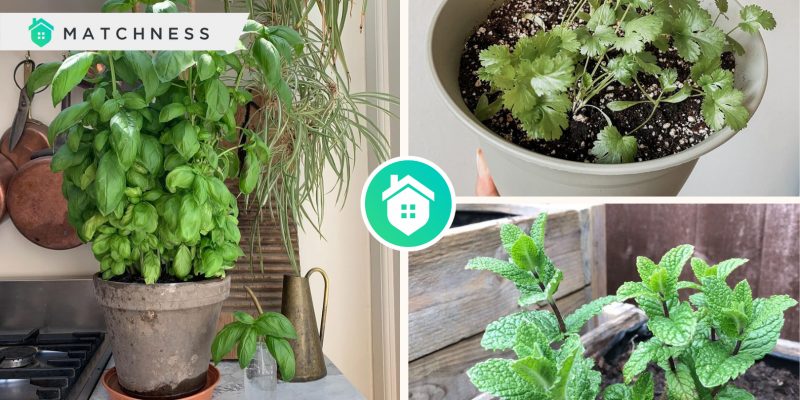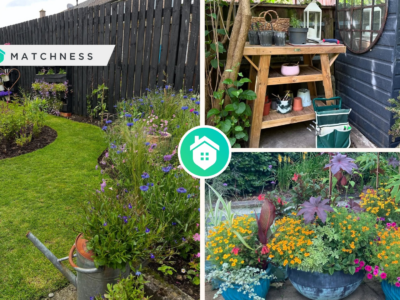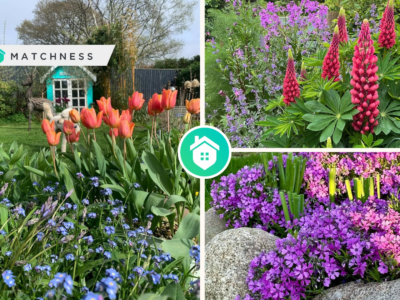Having herb gardens is a great idea for your home. An herb garden is a designated area where herbs are grown for culinary, medicinal, or aromatic purposes. It typically consists of a variety of herbs such as basil, mint, rosemary, and thyme that are easy to grow and maintain. Herb gardens can be grown indoors or outdoors, depending on the climate and space available.
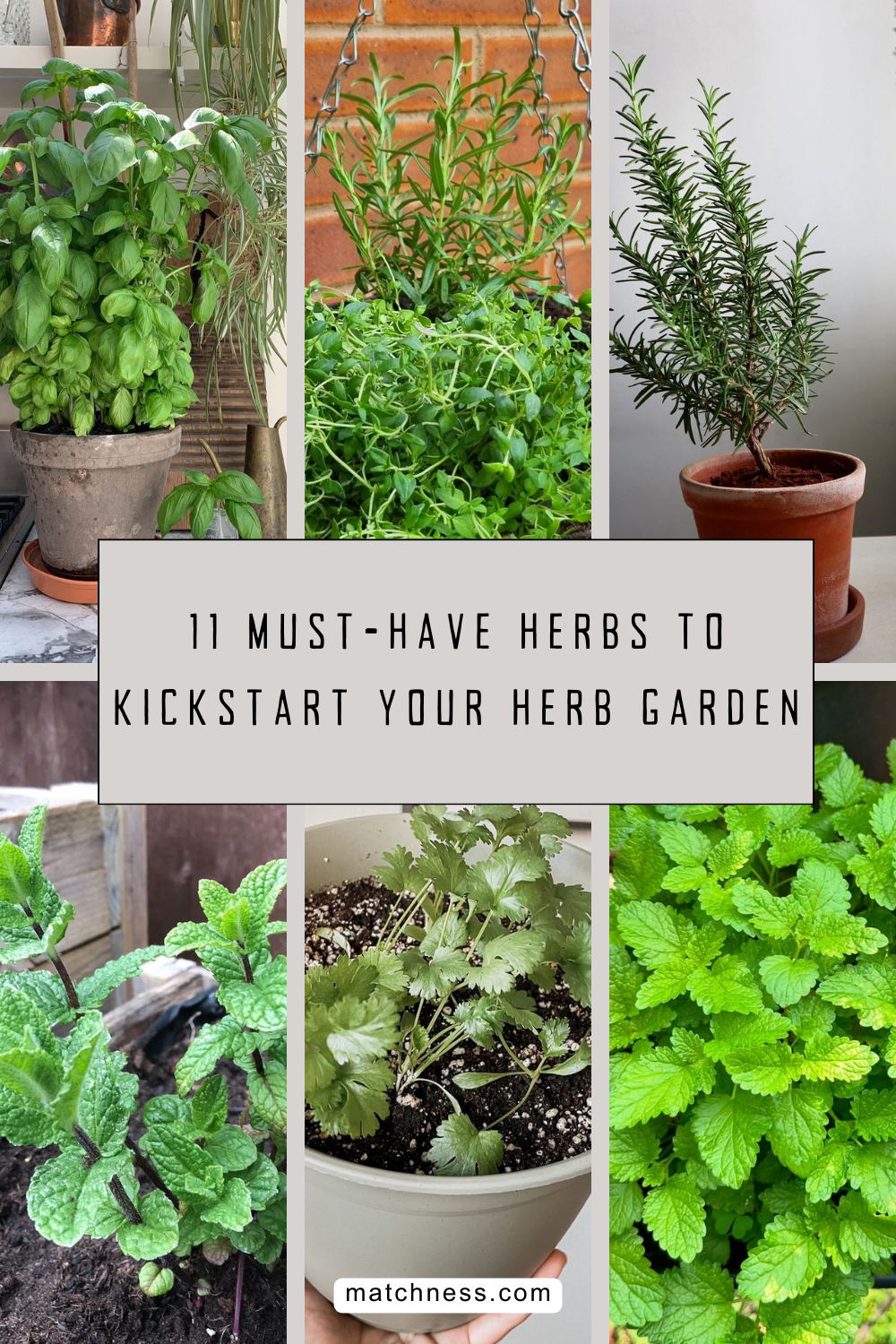
Growing herbs at home will provide a convenient and cost-effective way to add fresh flavors to your meals. It also allows you to enjoy the numerous health benefits they offer. From boosting immunity to aiding digestion, herbs are packed with essential nutrients and antioxidants that can enhance your overall well-being. Whether you are a beginner or an experienced gardener, here are some must-have herbs to kickstart your herb garden.
Common Culinary Herbs
Basil
Basil is easy to grow and thrives in warm, sunny conditions. This herb can grow in both indoor and outdoor settings, making it a versatile addition to any garden. This versatile herb is perfect for adding flavor to a variety of dishes due to its aromatic leaves. Making it a popular choice for homemade pasta sauces or salads. They come in different varieties, such as sweet basil and Thai basil. Thai basil has a slightly spicy flavor, while sweet basil is more mild and sweet. Consider planting multiple varieties to add depth to your dishes. Remember to harvest basil regularly to encourage new growth and prevent it from flowering, which can make the leaves bitter.

Basil is one kind of herb plant that is commonly used in cooking to add flavor to dishes. It can be easy to grow in pots and place it in your kitchen. Basil from @goodboneslondon
Rosemary
Known for its strong, pine-like aroma and robust flavor, rosemary is a hardy herb that can withstand hot, dry conditions. Rosemary can be grown in pots or directly in the ground, making it a versatile option for both indoor and outdoor gardens. It is commonly used in Mediterranean cuisine to add depth and earthiness to dishes such as roasted meats, vegetables, and breads. Furthermore, its woody stems can also be used as skewers for grilling.

If you want to make an herb garden, you can consider planting rosemary. It can be planted in the pot or directly in the ground and requires minimal maintenance once established. Rosemary is a versatile herb that can be used in cooking for its aromatic properties and even for its medicinal benefits. Rosemary from @gardenvibes14
Thyme
This is one of the versatile herbs that can be used in a variety of cuisines. Thyme is also drought-tolerant and requires minimal care, making it a great option for beginner gardeners or those with limited time for maintenance. You can grow it in containers or in the ground. Thyme is known for its strong flavor, which pairs well with meats, vegetables, and even desserts. It also has medicinal properties and can be used to help with coughs and sore throats.

Even in the hanging basket, you can grow thyme, which is a low-maintenance herb that thrives in sunny locations with well-drained soil. Thyme is also known for its aromatic leaves that are commonly used in cooking to add flavor to dishes. Thyme from @crazycook72
Cilantro
Cilantro is a staple in many cuisines, adding a fresh and citrusy flavor to dishes like salsa and guacamole. It is a versatile herb that can be used in both savory and sweet dishes to enhance flavor profiles. This herb is best grown in cooler temperatures and can be harvested frequently to encourage new growth. Cilantro is also known for its potential health benefits, such as aiding in digestion and reducing inflammation.
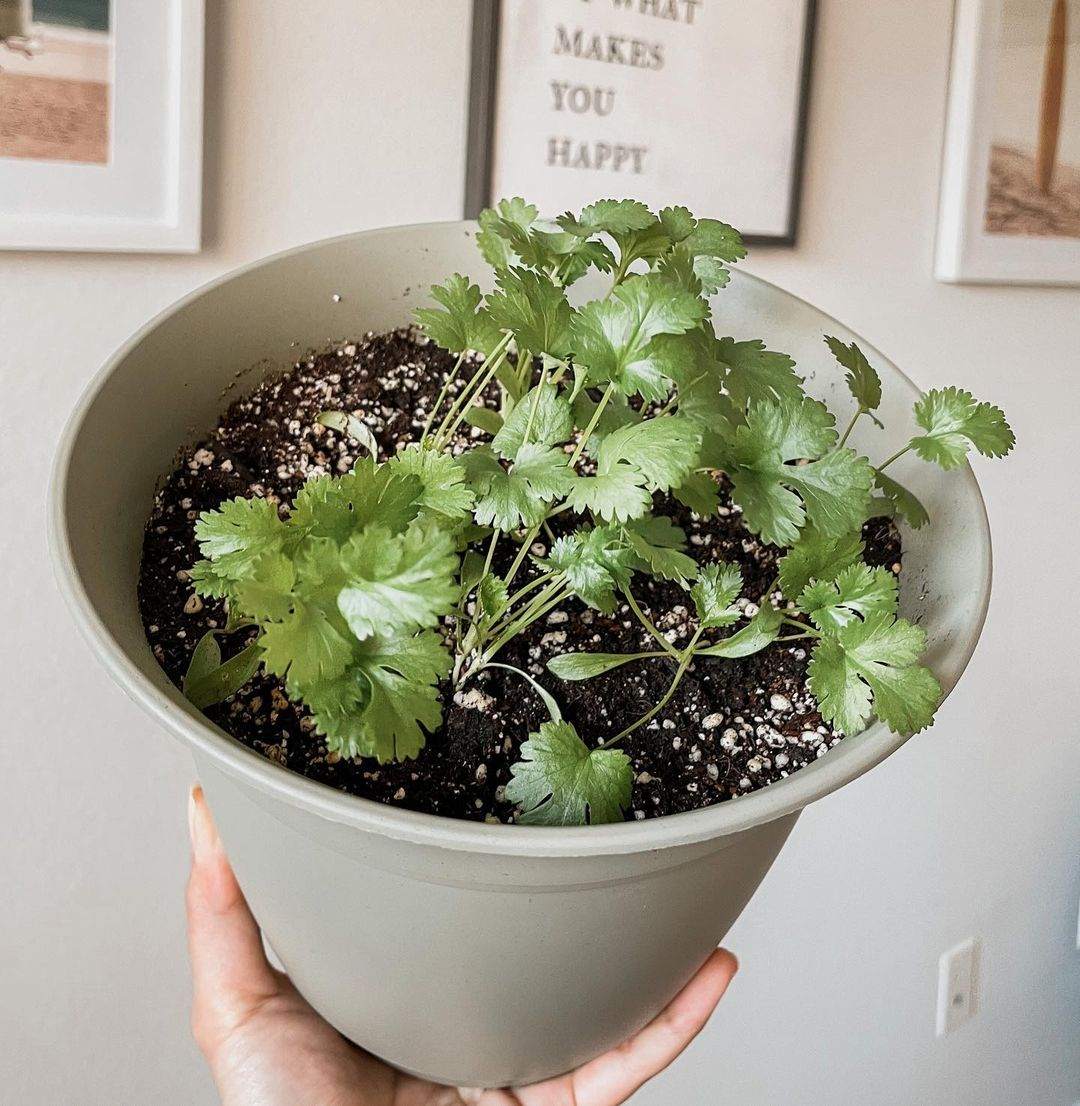
Growing cilantro in the pot is a great way to have fresh herbs on hand for cooking. Make sure to place the pot in a sunny spot and water regularly to ensure healthy growth. Cilantro from @the_gardn_grl
Parsley
Another culinary herb is parsley. This is a common culinary herb used in a variety of dishes for its fresh and slightly peppery flavor. It is often used as a garnish or added to soups, salads, and sauces to enhance the overall taste of the dish. Planting it in your herb garden will provide you with a readily available supply of this versatile herb for all your cooking needs. Plus, parsley is also known for its high levels of vitamins and antioxidants, making it a healthy addition to any meal.

Parsley is a great herb for your simple herb garden. It is easy to grow and adds a fresh, bright flavor to many dishes. Planting it in the pot makes it convenient to move around if needed. Parsley from @martinabcarolan
Medicinal Herbs
Lavender
Lavender is one of the medical herbs that is known for its soothing properties and calming fragrance. It is commonly used in aromatherapy to promote relaxation and reduce stress levels. Additionally, lavender essential oil can also help with headaches and insomnia when applied topically or diffused in the air. To plant this herb, all you need is well-drained soil and plenty of sunlight. Lavender is a low-maintenance plant that thrives in dry conditions, making it a great addition to any garden or indoor herb collection.

As a medicinal herb, this potted lavender plant can be used to alleviate stress and anxiety. Its calming scent can also promote relaxation and improve sleep quality. Lavender from @valleytownflowers
Chamomile
Another medical herb that you can plant in your garden is chamomile. This is a popular herb for promoting relaxation and aiding in digestion. For your information, chamomile is easy to grow from seed and requires little maintenance, making it a great addition to any herb garden. Furthermore, chamomile can be used fresh or dried for making teas or infused oils. Its delicate flowers have a mild, apple-like scent and flavor that is soothing to both the body and mind.

Chamomile can be another herb that you can plant in your garden. It is known for its calming properties and can be used to make a soothing tea. Chamomile also attracts beneficial insects to your garden, making it a great addition for natural pest control. Chamomile from @foliagequeen
Echinacea
Furthermore, echinacea is known for its immune-boosting properties. This herb has been used for centuries in traditional medicine to help fight off infections and reduce inflammation in the body. To plant this herb in your garden, it requires full sun and well-drained soil. Echinacea also attracts pollinators to your garden, making it a beneficial addition for both your health and the environment. Be sure to water regularly, especially during dry spells, to ensure optimal growth and blooming.
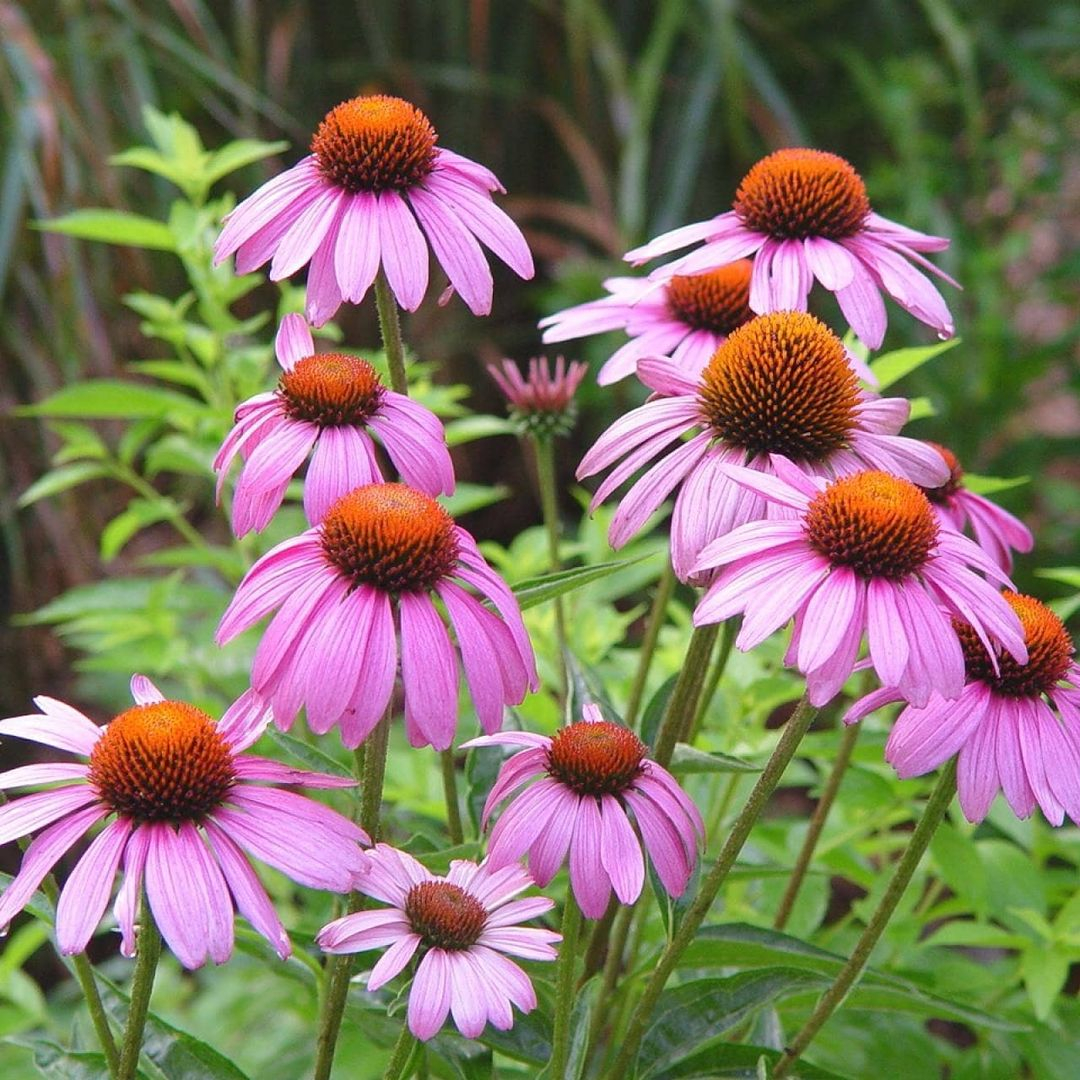
This medicinal herb, echinacea, can be dried and used to make tea, tinctures, or capsules. It is commonly used to boost the immune system and fight off colds and infections. Echinacea from @waymaker_botanicals
Aromatic Herbs
Mint
Mint is a refreshing addition to beverages and desserts. It is also easy to grow and adds a pop of flavor to your garden. With its cooling properties, mint is also commonly used in aromatherapy and skincare products. Additionally, mint comes in a variety of flavors, such as peppermint and spearmint, each with its own unique taste profile. Noted, mint can be invasive, so it is best grown in containers or in a designated area of your garden to prevent it from taking over. Be sure to trim back the mint regularly to keep it healthy and thriving.

You can grow mint in the wood box on your patio for easy access to fresh herbs while cooking. Just be sure to trim the mint regularly to prevent it from taking over the box. Mint from @growwithhema
Lemon Balm
Lemon balm is an aromatic herb that you can plant in your garden. The citrus scent of this herb can attract pollinators to the garden, such as bees and butterflies, which can help promote a healthy ecosystem. Additionally, lemon balm is known for its calming properties and can be used to make soothing teas or essential oils. This herb is also easy to grow and requires minimal maintenance, making it a great addition to any garden. But, you have to regularly prune to prevent spreading and to encourage new growth. Lemon balm can also be used in cooking to add a refreshing flavor to dishes, making it a versatile herb to have on hand.
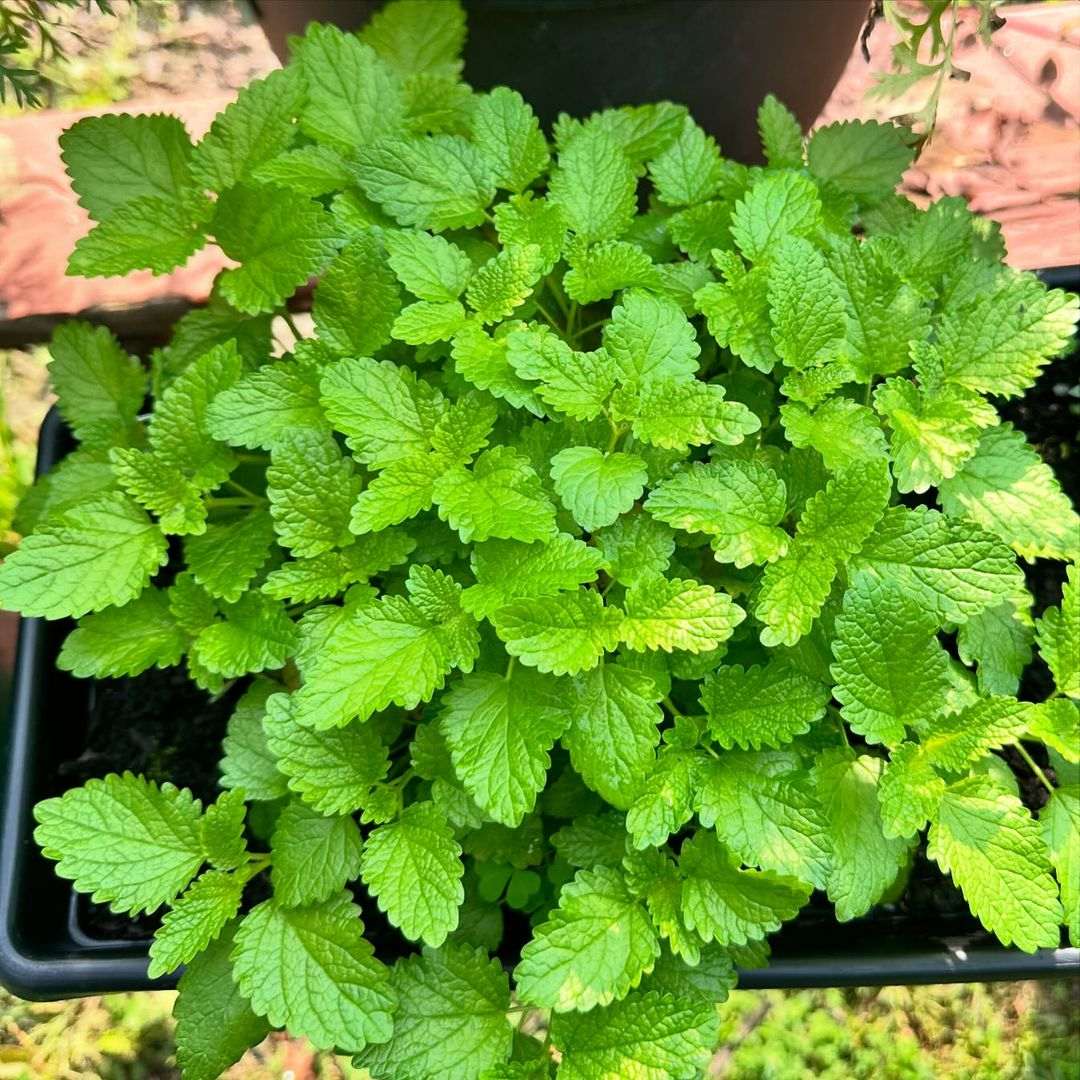
Lemon balm is easy to grow even though you are just using a container. This herb is suitable for your first herb garden because it requires minimal maintenance and can thrive in various growing conditions. Its mild lemon scent also makes it a pleasant addition to your outdoor or indoor space. Lemon balm from @dreamslittleoasis
Sage
Furthermore, sage is a woody herb with a strong, earthy flavor. It is used in savory dishes and as a natural remedy for sore throats and digestive issues. This plant can thrive in well-drained soil and full sun, making it a versatile addition to any garden. It is also known for its fragrant leaves that can be dried and used in potpourri or essential oils.

You can plant sage in the raised bed for your herb garden design. Sage is a hardy perennial herb that requires well-drained soil and full sun to thrive. Its aromatic leaves can be used fresh or dried in a variety of culinary dishes. Sage from @growgoodfood
These must-have herbs will not only add flavor to your dishes but also provide numerous health benefits. Start your herb garden today and enjoy the freshness and convenience of having these herbs at your fingertips.


